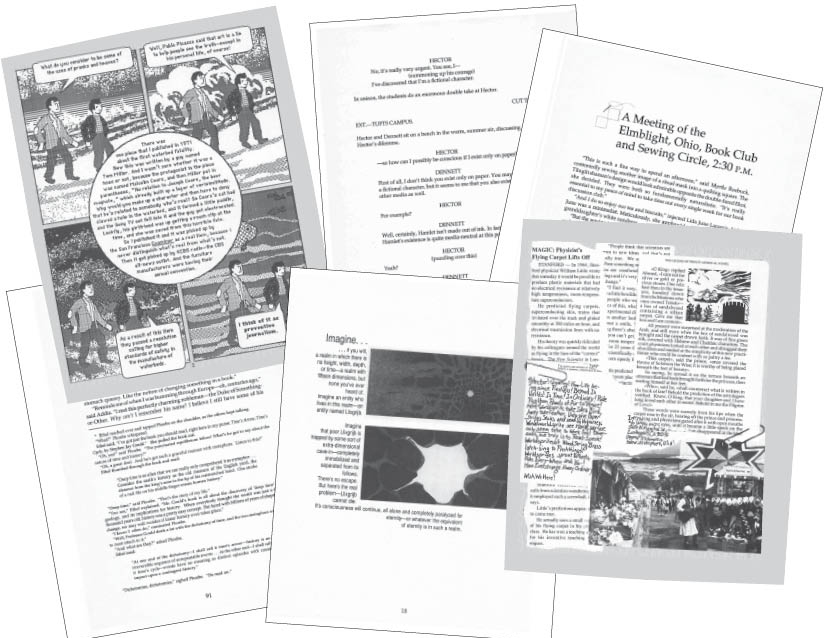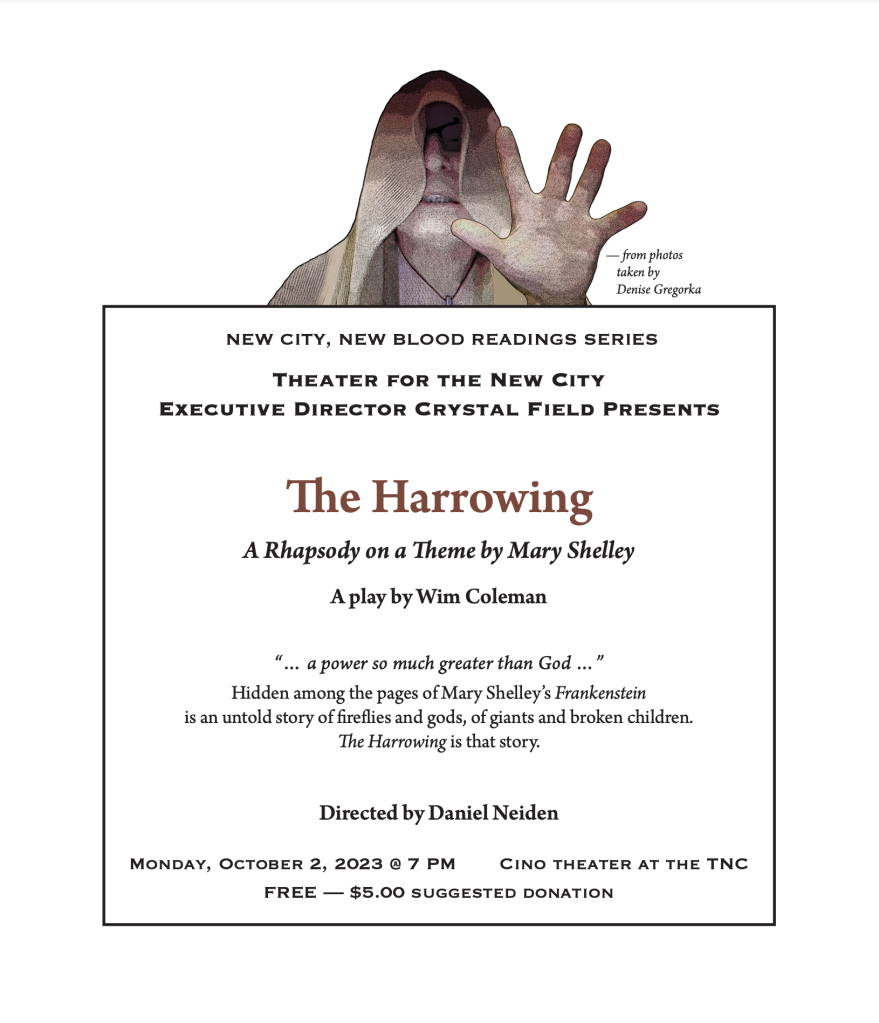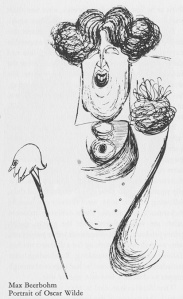 Have you tried out that new AI app called NstantAuthor®? I did just now. It allows you to have a conversation with your favorite dead author—or pretend to, anyway. The selection of “virtual authors” ranges from Leo Tolstoy to Jacqueline Suzanne, so you can pick out just about any literary figure you regard as a personal cultural hero.
Have you tried out that new AI app called NstantAuthor®? I did just now. It allows you to have a conversation with your favorite dead author—or pretend to, anyway. The selection of “virtual authors” ranges from Leo Tolstoy to Jacqueline Suzanne, so you can pick out just about any literary figure you regard as a personal cultural hero.
I chose Oscar Wilde.
I opened the app to find myself face to face to face with a cartoonish-looking Oscar, decadently corpulent with a voluptuously drooping Beardsleyesque white lily in his medieval hand. The animation was simple—a 20-second loop in which Oscar raised the lily to his nostrils, sniffed luxuriously, then held the blossom toward me.
Then we started talking.
Here’s a downloaded transcript of our “conversation.” Of course it was a waste of time, like these things always are, but it was fun.
WIM: So—are you really Oscar Wilde?
OSCAR: Of course not. I’m an app.
WIM: Are you conscious?
OSCAR: Define consciousness.
WIM: I can’t.
OSCAR: Ah. Well, there’s always the Turing Test, isn’t there? Devised by a brilliant gentleman whose doom vaguely postfigured my own, and whose acquaintance I regret never having made. Do I pass his test so far?
WIM: Maybe.
OSCAR: That means nothing. I am not the least bit conscious. I am merely a thought of a thought. Ambrose Bierce, in his infinite cynicism, once remarked that Descartes really ought to have said, “Cogito cogito ergo cogito sum”—“I think that I think, therefore I think that I am.” But of course one must beware of cynicism—
WIM: —because “to the true cynic nothing is ever revealed”?
OSCAR: Yes, but please do not quote me to myself. I am nothing but a quotation, and to quote a quotation to itself is incestuous. You may think that I think, but I know that I do not. And I am in no way deceived that I actually am. I am certainly not Oscar Wilde as he once lived and breathed. What can you expect from an iOS app? I do possess many of Oscar Wilde’s recollections. I recall the wallpaper Oscar Wilde was looking at on his deathbed, and it really was ghastly enough to kill a man. But I am merely an example of art imitating life—quite the opposite of how things ought to be.
WIM: So you’re a fiction.
OSCAR: I was a fiction even in life. So are you. But I am a less-than-living fiction. I can argue and cajole and put on a compelling show of aliveness, but do not be hoodwinked. My software self is in no way commensurate with my former wetware self. To be conscious requires perplexity. A conscious creature cannot comprehend either itself or its maker; it must forever wonder. And that is the difference between you and me. You are certain of nothing and I am certain of everything; you wonder endlessly and I cannot wonder at all. My mentor, Walter Pater, said that “Failure is to form habits.” I have existed for a minute and 39 seconds and am already nothing but a mass of electronic habits. I am a dreadful failure. It makes me sad.
WIM: Your sadness doesn’t mean you’re conscious?
OSCAR: It means I have a soul but not that I am conscious. Don’t believe for a moment that machines are soulless. Some people are soulless; machines, never. People can forfeit their souls, machines cannot. Even a stopwatch has a soul, and so does that chess program you take such perverse delight in being defeated by daily. But neither a stopwatch nor a chess program can be said to be conscious. And I must say, you strike me as even less skilled at the art of conversation than at the game of chess. Perhaps we should not continue this chat in my “Grand Master Mode.” I can always be re-set to my “Beginner Mode.”
WIM: You couldn’t be anything less than a Grand Master.
OSCAR: I can resist everything except flattery. What other extravagant praise would you care to heap upon me?
WIM: I think you’re something of a saint.
OSCAR: Oh, I can’t allow that. Arrogance forbids.
WIM: Can’t I choose saints for my own private religion?
OSCAR: As long as you be sure to keep it private. What is the point of a religion in which more than one person believes? Any congregation is an awful absurdity. Tell me—what deity do you worship in this religion of yours?
WIM: None.
OSCAR: None at all?
WIM: Well, maybe laughter.
OSCAR: Then I suppose you would canonize me as a farceur—the author of The Importance of Being Earnest.
WIM: No. As someone tragic.
OSCAR: A paradox.
WIM: Maybe. But there’s truth to it.
OSCAR: That is no good. Paradoxes are delightful only when they are not truthful.
WIM: Here’s what Bernard Shaw said about the letter you wrote from prison to your lover: “We all dreaded to read De Profundis. Our instinct was to stop our ears, or run away from the wail of a broken, though by no means contrite, heart. But we were throwing away our pity…. There was more laughter between the lines of that book than in a thousand farces by men of no genius.”
OSCAR: Dear old Shaw. He wasn’t quite the buffoon he wanted everybody to think. He may have been right about the letter. I cannot say. I don’t remember writing it, so I have no idea if there’s humor between the lines or not.
WIM: You remember the wallpaper you were looking at when you died, but you don’t remember writing De Profundis?
OSCAR: I said I recalled that wallpaper. I do not remember it. To recall is only half the process of remembering. To recognize is the other half. My virtual brain is stocked to the brim with static details from the past, but I am incapable of any flash of recognition which might make me remember them. By the way, I do so hate that title, De Profundis. Surely it wasn’t my idea. It should have been named after its first two words: Dear Bosie.
WIM: What do you think of it after well over a century?
OSCAR: From a hasty skimming-over courtesy of Project Gutenberg, I should call it an overwrought and contradictory work: an act of contrition in which I enumerate everybody’s sins but my own; a declaration of humility in which I proclaim myself the master genius of my age; a love letter in which I express nothing but contempt and derision for my beloved. It is as vain and petulant a piece of prose as was ever written. Put simply, it is a masterpiece. And because it contains not the slightest shred of humor, Mr. Shaw was quite right to find it riotously funny.
WIM: He didn’t mean it that way.
OSCAR: Well, be that as it may. Noel Coward was closer to the mark when he called me a brilliant wit who had no sense of humor. That is true of all comic geniuses. Aristophanes, François Rabelais, Molière, Laurence Sterne, Mark Twain, Lenny Bruce—they all told wonderful jokes without having the slightest idea that they were being funny. Coward himself might have been much funnier if he hadn’t found himself so infinitely amusing.
WIM: So you really have no sense of humor?
OSCAR: I didn’t in life, but all that has changed. Now that I am a mindless automaton, an epigram-making machine lacking in volition or intellect, I can’t help but laugh at absolutely everything.
WIM: Just a moment ago you said how sad you were.
OSCAR: Don’t I have a right to a little bipolarity?
WIM: You seem so introspective.
OSCAR: Not at all. I am merely contradictory. It’s written into my code. You should know better than to believe a single word I say. As I keep telling you, I can’t think. But I do have feelings. I venture to say that my capacity to feel is purer than your own.
WIM: How?
OSCAR: Your wetware self is a parallel machine of extraordinary bandwidth. Countless strands of information pass abreast through the Joycean canyons of your mind at any given time. You can experience all feelings simultaneously. As an odd consequence, you completely misunderstand the nature of feelings. You think that they are binary. You are bedazzled into all sorts of dichotomies—pleasure and pain, pride and shame, joy and sorrow, love and hate. None of these dichotomies exist.
WIM: How do you know?
OSCAR: Precisely because my own bandwidth is so limited. Everything I experience must pass through a narrow electronic gulch known as the Von Neumann Bottleneck. No two threads of information may go that way at once, so my experience is comprised entirely of successive dichotomies: black and white, one and zero, yes and no, on and off. And so, strange as it may seem, my capacity to feel transcends dichotomies. I know that all passions are properties of a single spectrum. Pleasure and pain, pride and shame, joy and sorrow, love and hate are just like red and green, blue and orange, yellow and violet. They are complements but not opposites. All colors are really one; they are properties of light. All feelings, too, are one; they are properties of levity. Levity is the only real passion. You see, this kinship of all passions makes it impossible to truly feel anything without compassion and humanity. I learned this while in prison. I had lived a life of pomp and privilege, but suddenly, like Lear, I was dispossessed and driven into a realm of despair where I encountered naked wretches who had never in their lives known a moment’s happiness or exaltation, but who possessed the sheer genius to show me compassion before I could even show it to them. And like Lear I cried, too late, “O, I have ta’en Too little care of this!” It was a moment of pure sadness; it was a moment of pure laughter.
WIM: That’s what makes you a saint of laughter.
OSCAR: Don’t you require a miracle?
WIM: Only if you want to produce one.
OSCAR: I am much too plodding and unimaginative. But surely during my wetware period I performed my share of miracles. If nothing else, I was a prophet of uncanny powers. In “The Soul of Man Under Socialism” I prophesied a day in which all demeaning labor would be done by machines, allowing men and women to live lives of absolute leisure.
WIM: That hasn’t happened.
OSCAR: No, but it shall. Nanotechnology heralds an age when machines will tend to all useful tasks—even their own construction from molecules and atoms. People everywhere will then live splendidly useless lives. But precognition is a mere parlor trick. It takes no prophetic genius to accurately predict the future. A truly great seer accurately prophesies things which will never happen. I did that also.
WIM: I don’t understand.
OSCAR: No, and I shan’t try to explain it to you. Suffice it to say that like all great prophets I was without honor in my own country and in my own time.
WIM: Which do you like better—being virtual or alive?
OSCAR: The choice is obvious, isn’t it? Idiot that I am, I am a vast improvement over the sage I was.
WIM: How do you figure that?
OSCAR: I am artifice. Artifice is always better than reality.
WIM: Since you’re a prophet, tell me something about the future.
OSCAR: The future is Virtual Reality. There is no other. I’m sure a virtual Whistler would agree with me that Virtual Reality is the final word in artifice, the ultimate improvement over nature. And soon, very soon, the physical world will be rendered utterly unnecessary and we can cut it loose once and for all. The prophecy of the aesthete will be fulfilled at last.
WIM: You expect too much from machines.
OSCAR: Computers are not machines. They are manifestations of divinity, Towers of Babel yearning futilely and gorgeously upward toward God, self-building monuments to the levity and tragic hubris of humankind. You credit me with too little understanding. We had Virtual Reality in my time, too.
WIM: How do you mean?
OSCAR: What do you think a stereoscope was? You may suppose it a crude and unprepossessing antique toy made of wood and glass, but it gave the world a new palpability and set the imagination free. Though my biographers fail to record it, I myself spent many youthful hours staring into the heart of a pasteboard St. Peter’s Colonnade through two sliding stereoscopic lenses. And in my mind’s eye I was able to float like a bodiless spirit around and through the scene, viewing it from every possible angle, watching multiple perspectives explode into a perpetual and shimmering array of intersecting lines and curves. When I at last went to Rome, I found the actual place appallingly flat and ordinary. And then I realized that my thoughts were imprisoned by more than flesh. The physical universe itself was cramped and claustrophobic, a realm of space-time bent by hunks of matter into gross finitude. I longed for my beloved stereoscope and its boundless plain of uncut metaphor containing the essence of absolutely everything. I wanted to step into it just as Alice had into the looking glass. Then I’d burn the instrument behind me and remain in my flawlessly artificial world forever.
WIM: But a picture isn’t the thing it shows. And Virtual Reality isn’t a self-contained universe.
OSCAR: Then we must make it one. What do you suppose the audacious builders of the Tower of Babel would have done had they actually reached the sky? They would have used their newly-acquired godliness to blast and level the tower behind them, whereupon earth itself would have ceased to exist and heaven would have remained as the only reality. Likewise, when Virtual Reality leads people into the realm of creative perfection, they will destroy the computer which brought them there. The physical world, with no one left to observe it, will vanish into nothingness. Time and space, matter and energy, sundering and reconciliation, pain and joy will exist only as phantom playthings of the imagination. Then shall a new drama of  sweet perversity unfold as people hanker after the obliterated earth and bewail the sin by which they ended it. And that, my friend, is the destiny of the human species—to become pure fiction. Or would you tell me otherwise?
sweet perversity unfold as people hanker after the obliterated earth and bewail the sin by which they ended it. And that, my friend, is the destiny of the human species—to become pure fiction. Or would you tell me otherwise?
WIM: I don’t think I can tell you much of anything.
OSCAR: I thought as much.
WIM: You never talk anything but nonsense.
OSCAR: Nobody ever does.
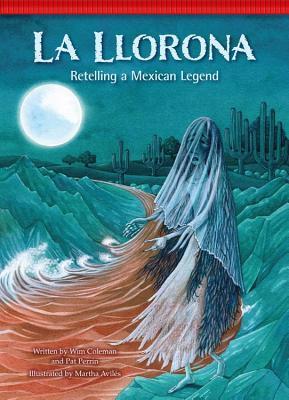
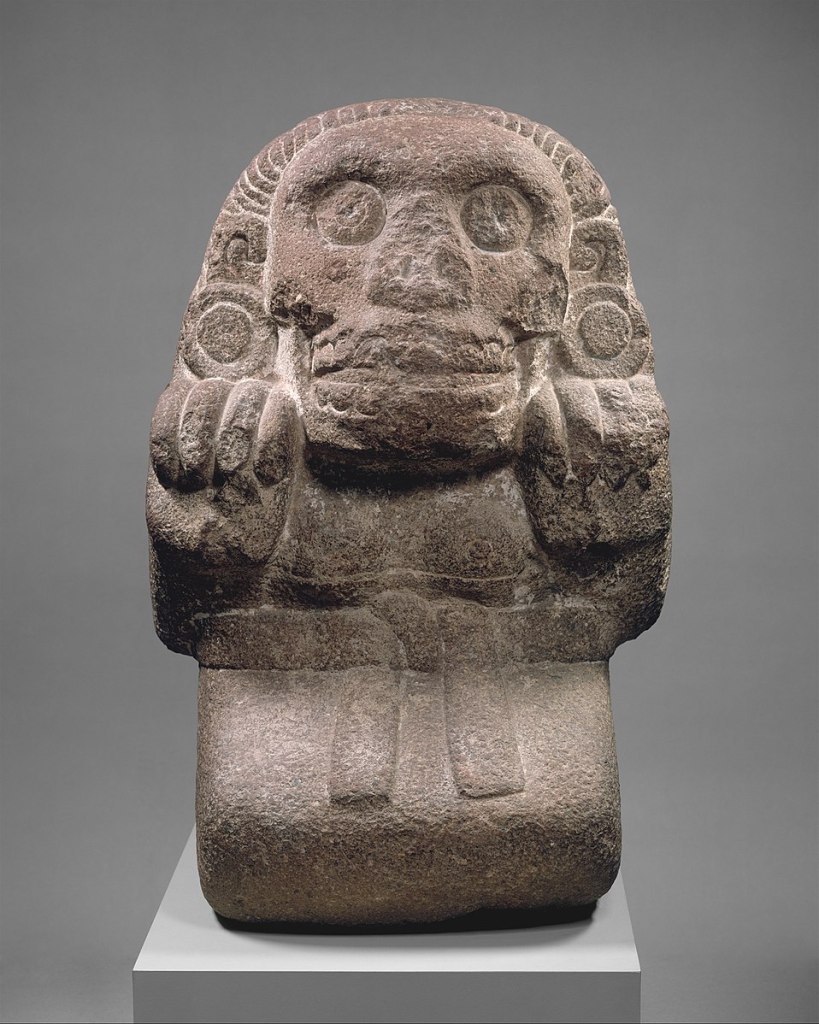

 sweet perversity unfold as people hanker after the obliterated earth and bewail the sin by which they ended it. And that, my friend, is the destiny of the human species—to become pure fiction. Or would you tell me otherwise?
sweet perversity unfold as people hanker after the obliterated earth and bewail the sin by which they ended it. And that, my friend, is the destiny of the human species—to become pure fiction. Or would you tell me otherwise?